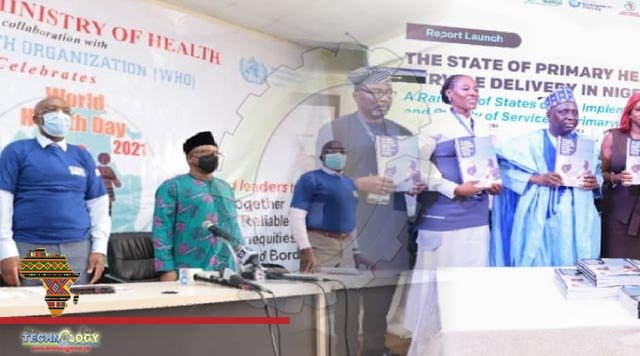It is no secret that the state of Primary Healthcare Delivery in Nigeria is poor. Decades of neglect by state and local governments, whose responsibility it is to provide primary healthcare services in the country, have resulted in inefficient and poor-quality primary healthcare service delivery across the country.

Every day, vulnerable people, including pregnant women and children pay the price of this inefficiency. However, the State of Primary healthcare Service Delivery in Nigeria, 2019-2022 report indicates that it is not all doom. While some states are in an extremely dire situation, others have slightly different stories to tell. Between 2019 and 2021, a consortium that includes ONE Campaign, National Advocates for Health, Nigeria Health Watch, and Public and Private Development Centre, assessed the state of primary healthcare delivery in Nigeria. The aim was to identify the weak links, showcase the strengths and highlight opportunities for improvement in Nigeria’s primary healthcare system. The assessment report, which was launched in July 2022, revealed the good, the bad and the extremely poor in primary healthcare delivery across the country. It also revealed the extent of implementation of the Basic Health Care Provision Fund (BHCPF) in Primary Health Centres (PHCs) across states in Nigeria.
The assessment was conducted using 20 indicators that cover policy design; legislation and implementation at state level; health workforce and health products; community experiences; implementation of the BHCPF; budgetary allocation and release; and basic healthcare service delivery. It revealed that in the areas of immunisation, nutrition and maternal health, only 19 of the 36 states and the Federal Capital Territory (FCT) achieved a score of 56% and above. The highest performing state, the FCT, achieved a score of 68%.Progress made in the implementation of the BHCPF, but gaps remain. The BHCPF was established as a catalytic funding mechanism under section 11 of the National Health Act, which was signed into law in 2014 with the aim of ensuring the provision of quality healthcare services in Nigeria. The first funding releases to the BHCPF pillars commenced in 2018. Findings from this assessment revealed that despite the resources committed to achieve its objectives, there are still huge gaps in the implementation of the BHCPF at the state level.
Primary Healthcare Delivery , For instance, each state is required to identify and register at least one PHC per political ward under the BHCPF. However, although all 36 states and the FCT have submitted a full list of PHCs to the BHCPF secretariat claiming that they have the required number of PHCs per ward, only 11 have at least one functional PHC per ward. This therefore means that greater oversight is required to ensure that states provide accurate details of PHCs across the different wards. This highlights that there is a need for greater accountability and transparency in the release and utilisation of the funds.The fact that 26 states in Nigeria do not have at least one functional PHC per political ward is a huge challenge and the state and local governments of these states must, as a matter of priority, channel resources into building or revitalising PHCs under their control and ensure that each political ward has at least one functional PHC. Two-thirds of the states have met up to 70% of the registration targets for the poor and vulnerable to access care under the National Health Insurance Authority (NHIA), one of the three gateways of the programme. This is a significant milestone, and the states should be commended. Efforts should be doubled to ensure that all eligible poor and vulnerable Nigerians have access to healthcare services under the BHCPF.
Source: This news is originally published by allafrica